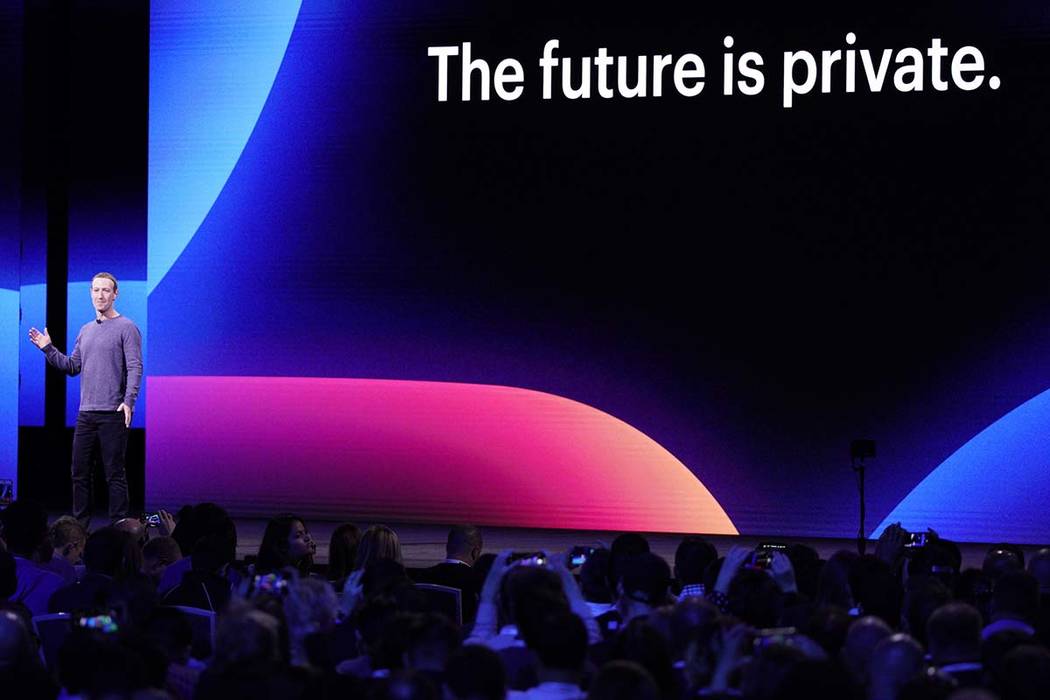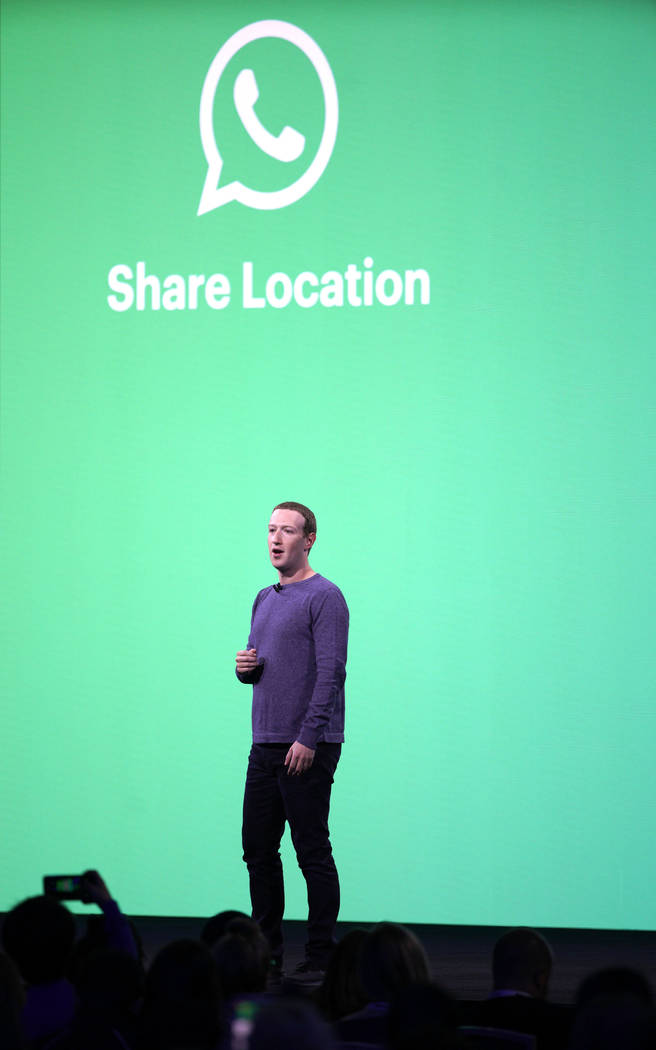Zuckerberg admits many doubt Facebook’s privacy focus push
SAN FRANCISCO — Facebook CEO Mark Zuckerberg kicked off the company’s annual F8 developer conference Tuesday with more details about his new “privacy-focused” vision for the social network — including end-to-end encryption for Messenger conversations and secure WhatsApp statuses that only friends can see.
The new features are part of his strategy for batting away Facebook’s growing array of critics, emboldened regulators and competitors. Zuckerberg acknowledged the skepticism of the company during his keynote.
“Look, I get that a lot of people aren’t sure that we are serious about this,” he said to laughter from the crowd. “We are committed to doing this well and to starting a new chapter for our products.”
Zuckerberg and his lieutenant, Sheryl Sandberg, have apologized repeatedly over the past year for Facebook’s ever-expanding list of mishaps over privacy, data misuse and security problems. Last week, the company said it is setting aside $3 billion to cover a possible fine from the Federal Trade Commission over privacy violations. Facebook has suffered hacks, allowed hate speech and live-streamed mass-shooting horror.
Amid all that, Zuckerberg is focusing Facebook’s future by emphasizing private messaging and Facebook’s role in “communities.”
Redesigned apps
A redesigned Facebook app and desktop version of the site puts private groups in the center of the page. More than 400 million users are in groups — or Facebook pages meant to bring people with similar ideas together. The redesign is structured to make it as easy to connect with groups as with individual friends, Zuckerberg said.
The overhauled mobile app unveiled Tuesday by Zuckerberg is supposed to make it easier for the social network’s more than 2.2 billion users to find other people with common interests by connecting through its groups features.
The new option to communicate through a Messenger app designed for personal computers is part of Zuckerberg’s plan to emphasize more private ways for Facebook users to communicate instead of encouraging them to share everything on their personal pages.
Messenger will eventually use encryption technology that will make content indecipherable to anyone but the sender and recipients. That’s similar to what Facebook’s WhatsApp service already does.
The redesigned mobile app is live for U.S. users today, and the desktop version is coming later this year.
Controversies emerge
Groups have also caused controversy for the company, especially as communities pop up around extremist topics. Facebook is working to remove groups that have “harmful content,” Zuckerberg said and deemphasize groups that share misleading information.
Conference attendees — by and large software developers who make a livelihood working with Facebook and its family of apps — will have a variety of sessions to choose from during F8. They can, for instance, sit in on “Facebook Stories School,” where they’ll learn about “tips and tricks” for making the best of this disappearing video feature. Or they can take in “Applying AI to Keep the Platform Safe,” where they can discover how Facebook uses artificial intelligence to “detect and remove bad content.”
Five years or more
Zuckerberg said last week that Facebook’s focus on private communications will be built out over the next five years or more. The model for this, he said, will be WhatsApp, a Facebook service that already offers end-to-end encrypted messaging — messages that can be opened by only the sender and the recipient and not by Facebook itself. But that approach comes with its own sets of problems. In India, for instance, misinformation spread on WhatsApp has led to real-life violence and even killings.
“A few years ago, we probably would’ve rolled this out and tried to deal with issues as they came up,” Zuckerberg said during Facebook’s earnings call on April 24. “But now part of our new approach of trying to be more proactive about social issues is trying to build in from the ground up, getting this right up front.”
Last year’s F8 conference took place weeks after the Cambridge Analytica scandal, in which tens of millions of Facebook users had their personal data accessed by a political data-mining firm without their consent. Zuckerberg had also just testified before Congress about that and other privacy mishaps, but at F8 was already trying to put those troubles behind him.
———
AP technology reporter Rachel Lerman contributed to this article from San Francisco.





























